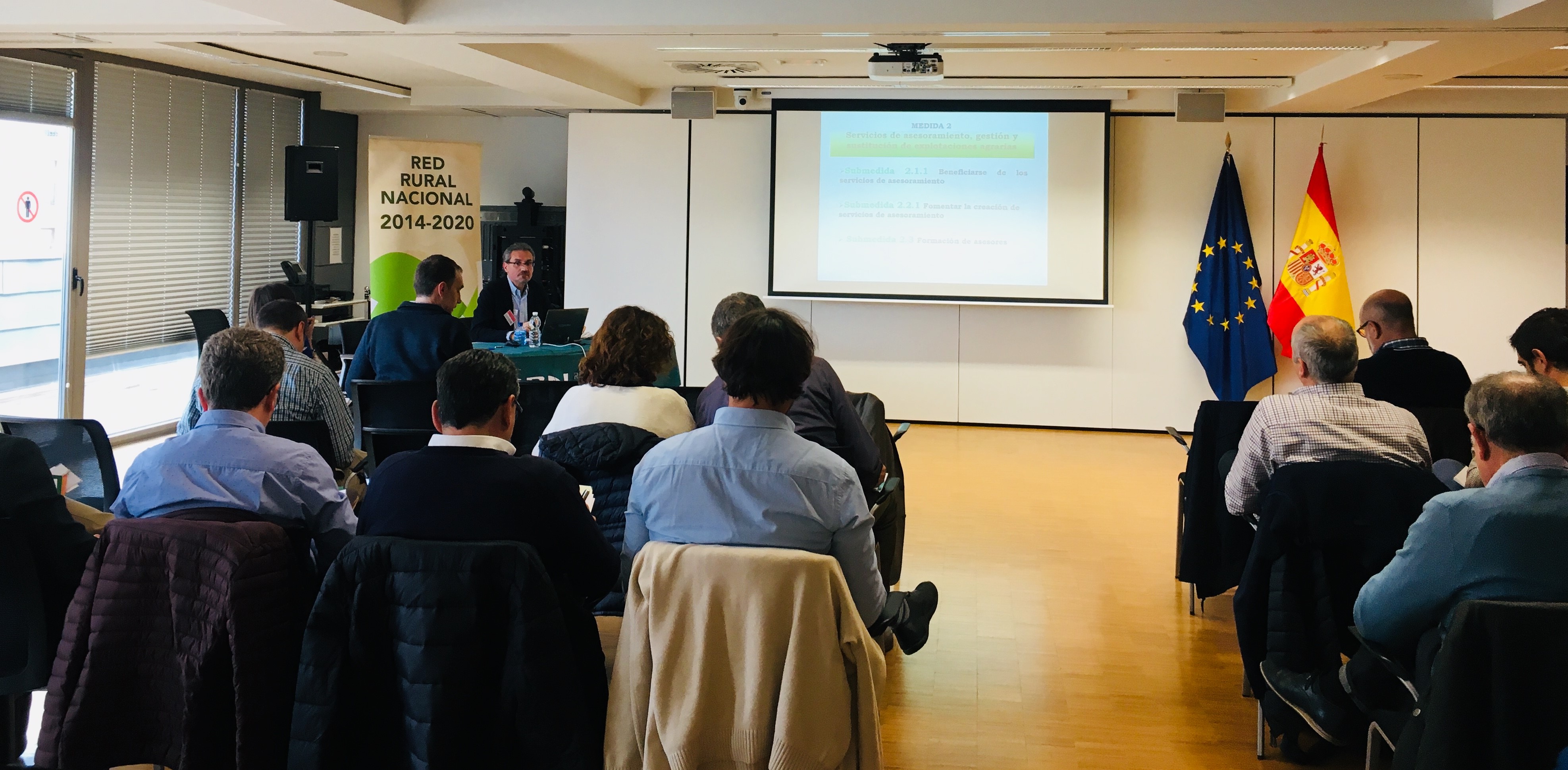
10 de April de 2019
Dinamización rural
The exchange of experiences between managers of Measure 2 of the Rural Development Programs has brought together more than 20 participants in a day organized by the National Rural Network, to debate and exchange opinions on the different management models of the measure that exist in the current programming period.
10/04/2019
Advisory services aimed at owners of agri-food, forestry, or small and medium-sized enterprises operating in rural areas are intended to be tailored to the recipient of aid, providing specific solutions to specific problems. These services, aimed at improving economic, social, and environmental outcomes, must provide accurate and high-quality information that supports compliance with their obligations and helps improve the results of their activities.
Rural development programming for the period 2014-2020 allowed for the inclusion of advice in the regional Rural Development Programmes, but the management of this measure has been a challenge for the Autonomous Communities, as already anticipated in the last conference on this topic, organised by the RRN in April 2016. For this reason, and at the proposal of the Department of Rural Development and Sustainability of the Government of Aragon , the RRN has organised this exchange of experiences between managers, with the aim of creating a space to debate how to improve the implementation of this measure.
The complexity of implementing this measure has conditioned its execution in many of the Rural Development Programs for which it was scheduled, mainly due to the application of Article 15 of Regulation (EU) No. 1305/2013, which sought to influence the transparent selection of service providers, which must be through the public procurement procedure. This aspect was subsequently modified with the entry into force of the Omnibus Regulation on January 1, 2018, which allows the possibility of implementing this measure through the aid line model. In this context, the conference was organized with the objective of contrasting the two models of this programming period and drawing conclusions to improve advisory services for the new programming period. First, the public procurement model was presented, as is the case in Castilla y León and Aragón; and, secondly, the aid line model implemented in Murcia and Extremadura.
During the presentations, numerous interventions provided a deeper understanding of the management of these services. The need to design higher-quality advice, tailoring the topics to specific needs, was highlighted. Furthermore, the importance of influencing a more profound transformation of the sector by raising awareness among farm owners about economic issues, legal requirements, and agricultural practices that are beneficial to the climate and the environment, beyond the mere provision of information, was emphasized.
The final part of the day was designed for attendees to participate in roundtable discussions aimed at debating and drawing lessons learned from experience in counseling that should be taken into account in the next programming period. This includes the need to standardize the counseling model nationwide, both in terms of management and the evaluation mechanisms used in the different Autonomous Communities. Other conclusions focused on simplifying the service award and delivery processes within the helpline model, suggesting that the processes for selecting entities could be separated from those for providing services.
The conclusions and materials used in the development of this conference can be consulted through the followinglink .









